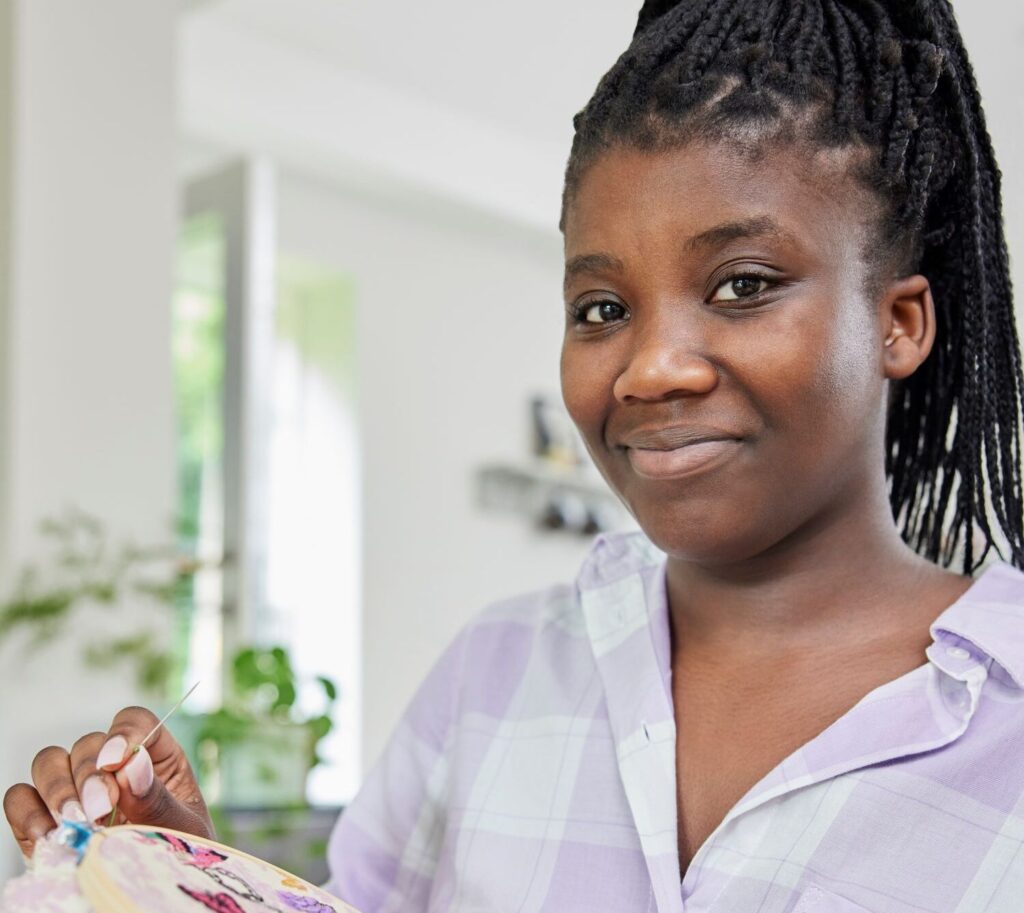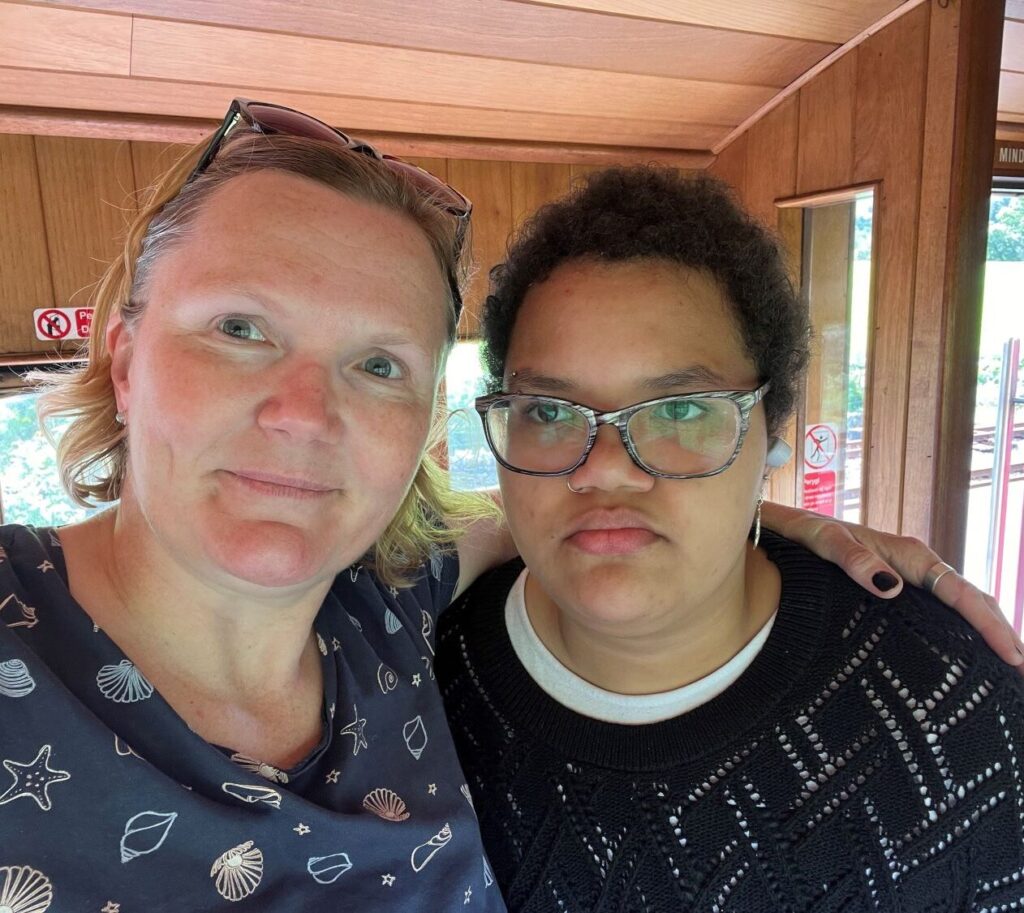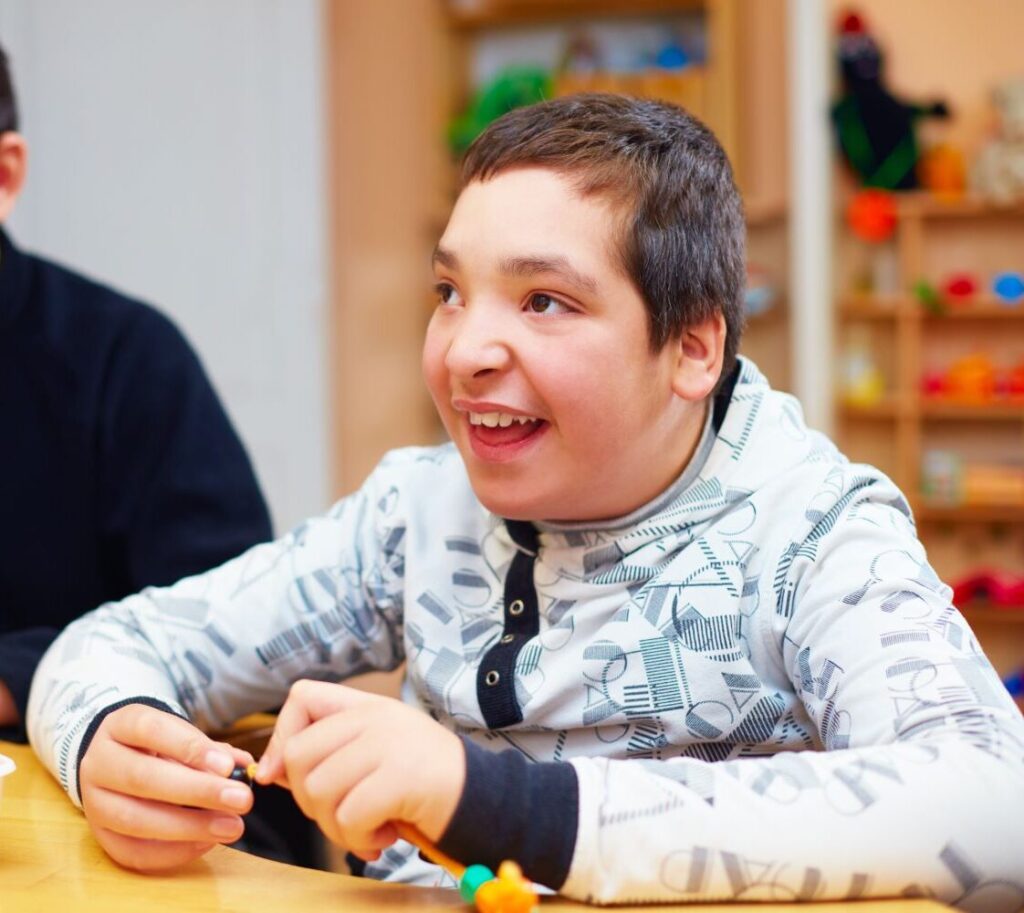Every child is different, but each one has to fit into a school curriculum created with millions of children in mind. Here Kathy – parent of two girls – shares her thoughts on how the system doesn’t always benefit children with special educational needs and disabilities (SEND) who learn in a more active way.
Both of my daughters have ADHD, but my eldest daughter also has sensory and autism traits. When she went to nursery, she found things a bit difficult, but I thought “she’s a child, there’s nothing wrong with her”. The ladies who worked there told me “she’s such a busy bee…’’.
She was also very forward in riding a bike and kicking a ball, and that theme continued as she grew up – she couldn’t write her name but could hold a paintbrush and create something. So, because I always saw the best in her, when she moved on to school, I didn’t know she was struggling at first.
I expected the school to flag it up to me or my wife if there was a problem, but it didn’t happen until one particular day at school.
I went to pick her up and the teacher came and told me she’d spent most of the day hiding out in a room next to the classroom, and they’d kind of just let her do so.
I thought I’d take this opportunity to ask why she didn’t have reading books, and the teacher said “she struggles with reading. We sound out singular letters, but she’ll give a different sound back”.
My ears pricked up. I knew she could do basic words because I sat down with her and did them at home, so when we got back to our house I had to film her and show the teacher later. She couldn’t believe it was her.
That’s when we found my daughter’s memory behaved in a specific way so if I sat with her and we did basic words, she would learn them but, come the morning, she wouldn’t know, or would be confused.

In year one the school had just labelled her as active and not really listening. Even so, she spent reception and years one and two at the school because I spoke to a new teacher coming in to teach the class. She was very helpful, and I was happy to remain open-minded and try a new approach.
But then that teacher left and the aspirations in my daughter’s report became “to be able to sit down for five minutes” and I thought “no, no, no”. It was a problem for me; I can pay for my child to go to an after-school club where they can have fun. In school I want them to learn whilst having fun.
I am a strong believer that some schools and teachers work for some children and not for others… it’s a “does the shoe fit?” type thing.
Finding the right support
I felt it had become about making her pliable rather than helping her – that’s what I felt it came down to and that’s why we went to look at other another schools. We had a good feeling about one and the children were happy and ready to move.
Even though the new school seemed very supportive, I knew my children would need support for the whole of their academic life and I wanted to ensure that we had a way to secure some kind of guarantee for the future.

I sat outside surfing the internet one day, found Family Action’s SENDIAS service and emailed them that night.
Within a day I had a phone call to touch base and we had a lengthy chat where I explained what we wanted to apply for and they told us what we may or may not get.
We wanted an Education, Health and Care Plan (EHCP), which guarantees the support my daughter would receive, and the SENDIASS worker explained how lengthy the process can be and offered to help us fill out the forms. It was difficult without a formal diagnosis of autism to accompany her ADHD diagnosis, both for the form itself and because the experts who assign that label can also tell you how to help your child.
The council declined that initial application, but Family Action told me they often do, and talked me through whether I wanted to appeal.
That was the most important thing about Family Action: I was always asked “where do you want to take things?”. It was never about putting words in your mouth.
Appealing the EHCP
I think the appeal paperwork was quite heavy and I needed help with what to put as when it’s your child everything is “normal”. Family Action helped bring out things that I would have missed through conversation, by allowing me to discuss the differences between what worked for her in comparison to her peers. For example, my daughter would say her legs and feet hurt, and that would affect her doing her schoolwork and, with the aid of a physician, we realised that was related to sensory issues.
We also had a conversation where she said she just didn’t understand numbers… She told me “I hate them. I can’t do anything with them”, and that affected everything – telling the time and time awareness.
We had a couple of educational psychologists involved in the end, but thankfully we have her plan in place now. She loves her comprehensive school – they have taken the time to know her and her needs. I’m pleased as the plan means she can be in mainstream schooling, but her support can’t be taken away from her. Even when she goes to college people can read her plan and get an overview of what works.
I’m also impressed by the schools’ attitude because I know if something isn’t working, they will make changes and find solutions.
I think that’s the thing – one size doesn’t fit all. I believe the only advice that applies to all children with special educational needs is that support should be tailored.
One size doesn’t fit all for my daughters with SEND
It took around two more years for my younger daughter to receive an EHCP plan, which I again completed with help from the SENDIASS service.
At the time she had a formal diagnosis of ADHD along with a speech and language deficit. However, she had no formal diagnosis for her learning deficit due to the waiting times for assessments, but Family Action suggested I list all the difficulties she was experiencing during the appeal process and that meant that, along with the EHCP, the specialists also recommended she be put forward for a formal diagnosis of Audio Processing Disorder as well as her getting the educational support she needs.
My experiences working with Family Action opened my eyes a little bit, and I decided I wanted to pass on the help I’d received and support more people, so I’ve taken up a position volunteering with a charity who work in a related field.
I think parents need a listening ear more than anything else and, as a parent, I understand that people want to get help quickly. But I hope that anyone reading my story can see that, although things don’t always go fast, the correct approach does result in the right answers eventually.
It’s taken time, but nowadays my children come out of school smiling…
Donate
Meeting your children’s needs is not always easy. For those with special educational needs or disabilities, it can be even harder. A donation from you today will help families like Kathy’s find the support they need to thrive.









